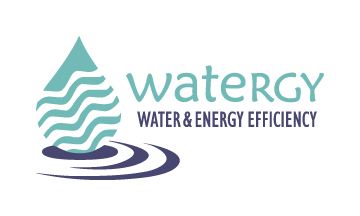Watergy Fact Sheet: Sri Lanka

Watergy Fact Sheet: Sri Lanka
Challenges
Water supply shortage is a critical issue for Sri Lankan municipalities as they face the pressures of an increasing population, a rising per capita demand for clean water, and increasing power tariffs. The National Water Supply and Drainage Board (NWSDB) operates more than 275 pumping stations across the entire island nation. It spends a significant proportion – 40% of its resources paying for the energy to operate water and sewage treatment systems. Tremendous opportunities exist for energy and water savings in municipal water supply operations through the implementation of simple, low-cost energy efficiency measures. Although NWSDB represents a potentially fertile market for energy efficiency companies, the Water Board is presently underserved by the energy efficiency industry, partially due to an undeveloped energy service industry.
Objectives
The dual objectives of this program are to reduce energy consumption in municipal applications, thereby increasing financial sustainability and reducing environmental impacts, and to build the capacity of municipal institutions and water boards to improve the delivery of water to households, especially the urban poor. This effort is centered on partnerships with the NWSDB, and private technical consultants.
Approach
Following on the success of the Alliance’s work with local government units and municipal water utilities in India, the Alliance developed the Sri Lanka Watergy program - a municipal energy efficiency initiative that emphasizes the energy saving opportunities in the water and wastewater sectors. The Sri Lanka Watergy Program started in October 2002 with pilot projects to demonstrate opportunities for water and energy efficiency in the city of Colombo. To build lasting capacity within NWSDB, the Alliance helped establish an Energy Saving Unit (ESU) within NWSDB consisting of six senior and middle-level technical and managerial staff working to enhance efficiency in NWSDB operations throughout the country. NWSDB granted formal approval to ESU in 2004
The Alliance, along with technical consultant, conducted a 15 day, hands-on energy audit training program for the unit that involved 25 engineers from across the country at the Anuradhapura. Under the Alliance team supervision, the unit carried out energy audit in a section of the Ambatale plant in Colombo and identified energy saving opportunities. The unit in turn conducted a series of trainings at the technician level, training 110 officers in charge during 2004-2005 out of a total of 180. These operators have been given the responsibility of reducing each of their pumping stations electricity bill by LKR 500 and tabulating and comparing energy use over time. The Watergy Program also organized a knowledge exchange meeting between Indian Water Utility – Delhi Jal Board decision makers and NWSDB’s senior management to discuss energy efficiency implementation, with the ultimate objective of scaling up the energy efficiency activities. The Alliance also organized another advanced training program in Bangalore for 8 NWSDB engineers by leveraging ADB funds available with NWSDB.
Results
The Sri Lanka Watergy Program has facilitated energy audits in municipal bulk water supply stations in the cities of Colombo and Anuradhapura, and assisted in the training of 40 water utility engineers and managers in energy efficiency best practices. Implemented measure at Ambatale are yielding approximately Savings 0.76 millions of SLR per month. The Watergy Program also initiated an international knowledge exchange between Indian technical specialists and energy auditors and water utility managers in Philippines and Sri Lanka. The feedback of two NWSDB engineers trained at the Watergy audit training program in the city of Iloilo, Philippines, was instrumental in helping establish ESU at NWSDB engineers that aims to train over 400 municipal engineers nation-wide.
The effectiveness of disseminating the Watergy in Sri Lanka was demonstrated when one of the key members of the ESU, after being trained on water and energy efficiency at the Ambatale plant, took his experience to his new posting at Kantale water supply plant, in Trincomalee. Without any major investments, by making minor equipment changes and undertaking civil works to improve energy efficiency and increase water supply, the Kantale plant has achieved monthly energy savings of 194,370 kWh, additional increase in water supply by 3600 M3 corresponding to a yearly cost savings of almost US$ 200,000 recorded in the financial statements of NWSDB. The electric utility that provides electricity to the Kantale plant has used the energy saved to supply electricity to 4,000 additional households.
The Alliance has prepared a five-year road map for NWSDB with action paths for achieving a target of greater than fifteen percent energy cost savings over the next five year period (2007-2011), and for NWSDB to be acknowledged as a staunch practitioner of EE in water supply and waste water systems. The Roadmap lays out a set of action paths that ESU should follow in order to convert this vision into reality. The Alliance continues to work with NWSDB to successfully implement the goals set in the roadmap.
The roadmap annex documents provide:
STAY EMPOWERED
Help the Alliance advocate for policies to use energy more efficiently – supporting job creation, reduced emissions, and lower costs. Contact your member of Congress.
Energy efficiency is smart, nonpartisan, and practical. So are we. Our strength comes from an unparalleled group of Alliance Associates working collaboratively under the Alliance umbrella to pave the way for energy efficiency gains.
The power of efficiency is in your hands. Supporting the Alliance means supporting a vision for using energy more productively to achieve economic growth, a cleaner environment, and greater energy security, affordability, and reliability.



